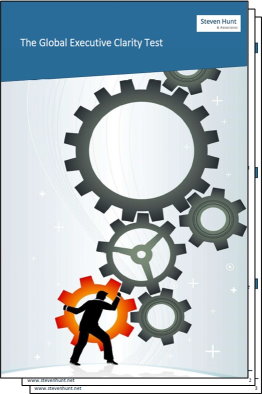Management theory likes to focus on what you can and can’t control. Pop psychology has been in love with this idea for years. In 1954, Julian Rotter came up with the concept of locus of control. A lot of today’s thinking is still based on Stephen Covey’s 1989 book, in which he explains the circles of concern and influence.
Rotter and Covey do a good job of explaining what can happen at an individual level. That doesn’t help managers at an organisational level who deal with complexity every day.
One of the most frequent topics in my advisory and coaching work is, “How do we find the time to focus on our big priorities?”
Business success comes from the group you can’t totally control
If you’re a senior global manager, you have three groups which control what gets done:
- You
- Your team / direct reports
- Others (e.g. frontline, local employees)
Your influence over the first two groups is high. But you have little control over Others. At best, your influence touches the middle and top of the local country.
Now reverse the perspective and view the situation as the frontline employees see it. Research shows that their colleagues and direct supervisor influence them most, not a site visit or pronouncements from the big boss. A senior manager, sitting in another country and a different time zone has even less influence.
The key for global managers is to internalise the idea that there are three groups for getting things done. You can only really influence two of them: yourself and your team/direct reports.
Distractions lead to short-lived satisfaction and a shrinking respect
The challenge, then, is to strengthen the backbone – the clarity of purpose, the structure, and the global processes – to make it easy for frontline employees to make the right decisions.
The problem is it’s easy to be distracted by fire-fighting minor issues. One client had a stream of junior managers coming into his office to get advice on specific customer’s issues.
For sure, it’s satisfying to help the junior managers deal with the problem. It’s more motivating (at that moment) than working on bigger corporate priorities, for which you’ll get no overt thanks. But there are two challenge with micro-managing and not delegating these tasks.
First, your fire-fighting makes life too comfortable for others. Why do the hard work of making collaboration work between global departments if the big boss will step in and do it himself?
Secondly, these distractions are a ego-trap for you. It makes you feel good, feel wanted and loved. But it should be delegated. It takes time away from the hard, essential work of your big priorities. And it’s this work that will grow people’s respect for you in the long-term.
The reality is that sustained success comes from stopping these distractions.
Focus on congruent actions – by you and your team
Take a typical example: customer satisfaction. Frontline employees in places you don’t see are the point of interaction with customers. It’s what frontline employees do (or don’t do) that matters.
In global companies, service delivery also depends on a complex network of teams and departments across global locations. Smooth collaboration is vital.
This brings us back to the initial questions: finding time to focus on the bis priorities. That starts by answering this question:
What are our (i.e. you and your team’s) should-do’s to achieve our #1 priority?
There’s a lot of you could-do. The point is to get into a trustful dialog about how to coordinate your influence over your shared priority. Influence grows exponentially when the management teams’ words are aligned with united action.
Nothing is harder in a global company than two distant Senior VPs asking local managers and employees to follow conflicting goals. Chaos is guaranteed.
The most valuable dialog is not what your team could-do. Between them, the top team has the power and ability to start any number of initiatives and actions.
The really useful discussions have a sharp focus on what you should-do, as a team, to make the #1 objective happen. This is easier than it sounds. It starts with a shared, clear understanding of your priorities. It involves trade-offs and sacrifices – which can only be sustained in the long-term through trustful dialog.
Effective dialog stops distractions. It guarantees aligned action on your #1 priority. It builds up global collaboration and stops micro-managing. It sends a clear message to everyone about the focal point of all actions. And it is the easiest way to win the deep respect of the people you lead and get the business results you want.
















